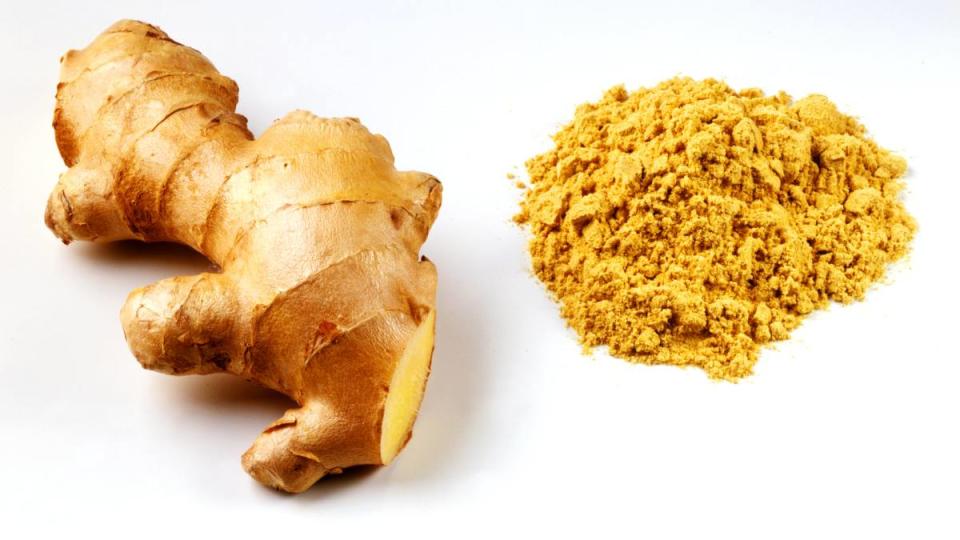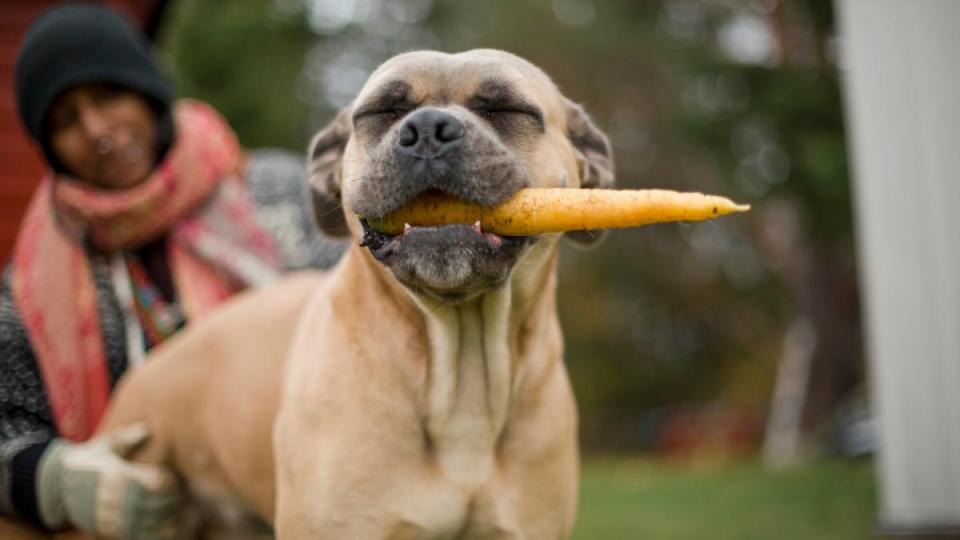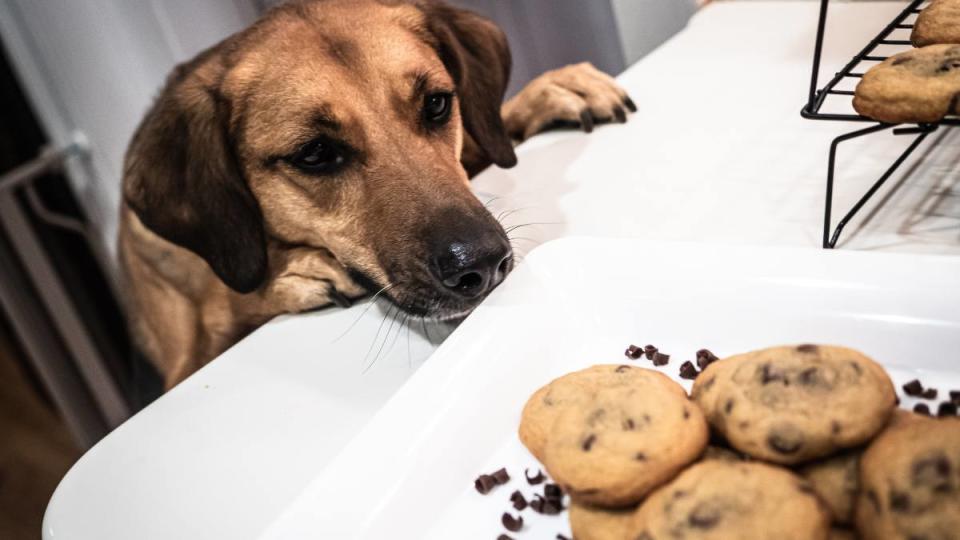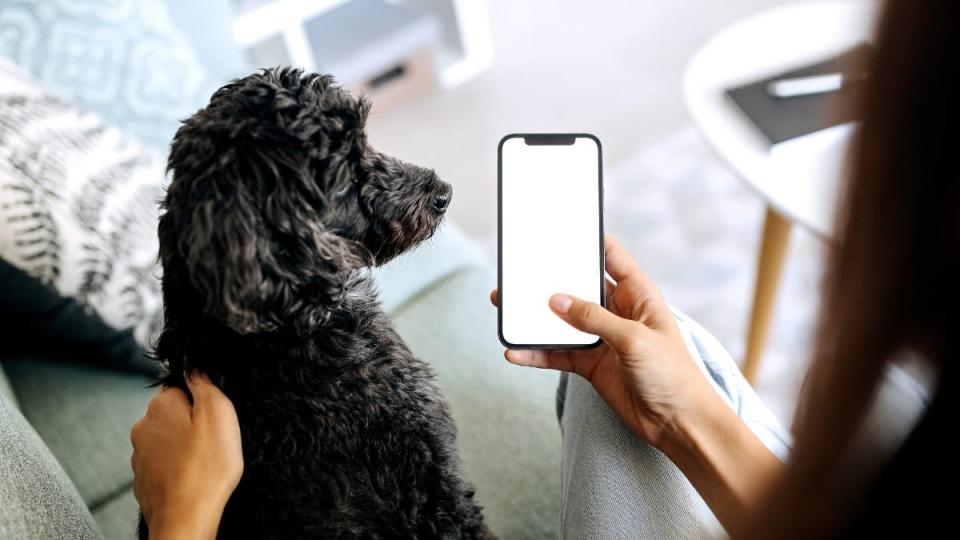Can Dogs Eat Ginger? Vets Weigh in on Whether or Not the Root Will Make Them Sick
If you’re a dog owner, you probably know how impossible it can feel to keep your canine companion out of your food. You think your dog is well-trained, only to walk in on them standing on the kitchen counter, scarfing down the rack of ribs you were planning on having for dinner. Or perhaps they’re on their best behavior 95% of the time, but when you walk past that one patch of garbage on the sidewalk … it’s dinnertime, baby. This habit is annoying at best and downright terrifying at worst. What if your beloved pet gets into something that’s not safe for them to eat? The best way to prevent possible danger to your pet (and thousands of dollars in vet fees!) is by being aware of what your dog can and cannot safely eat before an incident happens in the first place. Some food types are obvious — it’s common sense that it’s not a great idea to give your dog chocolate or alcohol, for example. But other everyday foods can be more tricky. Are eggshells okay? Can dogs eat ginger? What about fruits, like grapes and cherries?
It might feel overwhelming to contemplate, but don’t fret — we’ve called in the experts to give you the lowdown on everything your furry best friend can and cannot eat.
Can dogs eat ginger?

If your dog has ever thrown up on your carpet for what appears to be no reason, you’ve probably been tempted to feed your dog ginger, which is often used to treat nausea and digestive pain in humans. But is it safe for dogs?
“Ginger can be given to dogs in small amounts,” says veterinarian Athena Gaffud, DVM. “Ginger-flavored treats or grated ginger can be added to your dog’s food – just make sure it isn’t pickled or added with other ingredients.”
Can dogs eat ginger if they have an upset stomach?
According to Dr. Gaffud, ginger contains gingerol, a bioactive compound with anti-inflammatory and antioxidant properties. It’s this compound that makes ginger a common treatment for nausea. But that doesn’t mean you should reach for it when your dog is throwing up.
“Ginger is very safe for dogs,” says Jo Myers, DVM, a veterinarian at Vetster, a veterinary telemedicine platform. “That being said, when a dog suddenly develops vomiting or diarrhea without a known cause or from eating something they shouldn’t, it’s inadvisable to give anything at all by mouth.” Dr. Myers explains that swallowing anything is likely to trigger more vomiting, rendering any anti-nausea medication, ginger or otherwise, ineffective. What’s more, vomiting can actually be useful for your dog.
“Vomiting often serves a purpose: Removing the offending substance from the body,” Dr. Myers explains. “If vomiting persists, it’s more important to identify and address the underlying cause instead of trying to mask the symptom itself.”
In other words, don’t be afraid to add a bit of ginger to your dog’s regular diet – but if your dog appears to actually be sick, it might be time to call the vet rather than reach for ginger or any other dietary fix.
What human foods are safe for my dog to eat?

While, in general, it may be a good idea to stick to vet-approved dog food for your pooch, there ARE some human foods that can be good for dogs and humans alike.
“When cut up into small pieces to avoid choking, raw or cooked plain carrot can be a great healthy snack for your pup,” says Lorna Winter, the cofounder and head of programming at puppy-training app, Zigzag. “Canned pumpkin can also be safe if given in moderation. With that being said, it’s essential to comb through the ingredient list, as some canned pumpkin can contain chocolate or xylitol, both toxic to puppies.”
Cheese can also be a yummy snack for your pet. According to Winter, Swiss, mozzarella and cheddar are all safe in small amounts. But she recommends staying away from blue cheese, goat cheese and feta, which contain higher amounts of saturated fat and lactose and can be tough on your pet’s digestive system.
Related: Can Dogs Have Blueberries? Vets Weigh In On What ‘People Food’ Is Safe For Dogs
Red flag foods your dog should avoid

The list of foods your pooch should stay away from is a bit longer. According to Dr. Gaffud, the following foods can be toxic or potentially harmful to dogs:
Grapes, raisins and sultanas
Plums and prunes
Chocolate
Seeds and pits
Avocado
Aromatics, such as onion, garlic, and spices of any sort
Dairy products
Salty foods
Broccoli
Tomatoes
Mushrooms
Nuts
If you aren’t sure whether a food is okay for your dog to eat or not, it’s best to stay away, no matter how much your dog begs or how adorable the puppy eyes are. Even if a food type isn’t toxic to your pup, it still might not be good for them in the long run.
My dog ate something new and is sick. Now what?
Let’s say that, despite your best efforts, you turned your back for a moment, and your dog gobbled up something potentially dangerous. Now what?
First things first: Don’t panic. You aren’t the first dog owner in this situation, and you certainly won’t be the last. Here's an expert-recommended guide on what to do if your four-legged friend indulges in a questionable feast.
1. Do some detective work
If you didn’t actually see the incident yourself, your first task is to channel your inner Sherlock Holmes and investigate the crime scene. What did your pup eat? Check for wrappers, chewed-up objects or any telltale signs of mischief. The more details you can gather, the better equipped you'll be when consulting with the vet.
2. Observe and report
Keep a close eye on your furry friend for any signs of distress, such as lethargy, vomiting or diarrhea. Note down any unusual behavior and contact your vet ASAP, especially if this behavior continues after several hours.

“If symptoms are getting worse, like repeated retching, bring them to the vet immediately, and remember all the possible food your dog ingested,” advises Dr. Gaffud. “The dog may be suffering from food intolerance, food allergy or toxicity.”
Even without clinical signs of illness, it’s best to avoid playing veterinarian and give your dog’s doctor a ring to provide them with a detailed account of what happened. In severe cases, they may advise you to bring your dog into the clinic.
3. Avoid DIY treatments
Resist the temptation to play pharmacist and avoid administering any medications without a green light from your vet. Some remedies can make matters worse, and we don't want to add insult to your dog's already upset tummy. Stick to the expert advice, always.
So, can dogs eat ginger? Yes – with caution
Here’s the long and short of it: If your dog has developed a taste for ginger, don’t stress. But in general, when it comes to feeding dogs human foods, moderation is best.
“Human food is not harmful to dogs. However, it is more likely to cause problems than a regular dog food diet,” Dr. Myers says. “Keeping human food off your dog’s menu often makes it easier to keep your dog at a healthy weight and decreases the likelihood of recurring bouts of vomiting or diarrhea.”
Being a responsible dog owner means knowing what’s on the menu for our furry friends. Sometimes, that’s out of our control, sure. But staying informed on what your dog can and cannot eat and being vigilant about what they scarf down when your back is turned can go a long way towards keeping your beloved pup their happiest and healthiest self.
For more on dogs, click through the links below!
Do Dogs Dream? Vets Reveal What All That Twitching in Their Sleep Really Means
Why Dogs Chatter Their Teeth — Vets Reveal the Reasons, And They’re Totally Relatable
Are Dogs Ticklish? Vets Reveal the Most Common Canine “Giggle” Triggers

